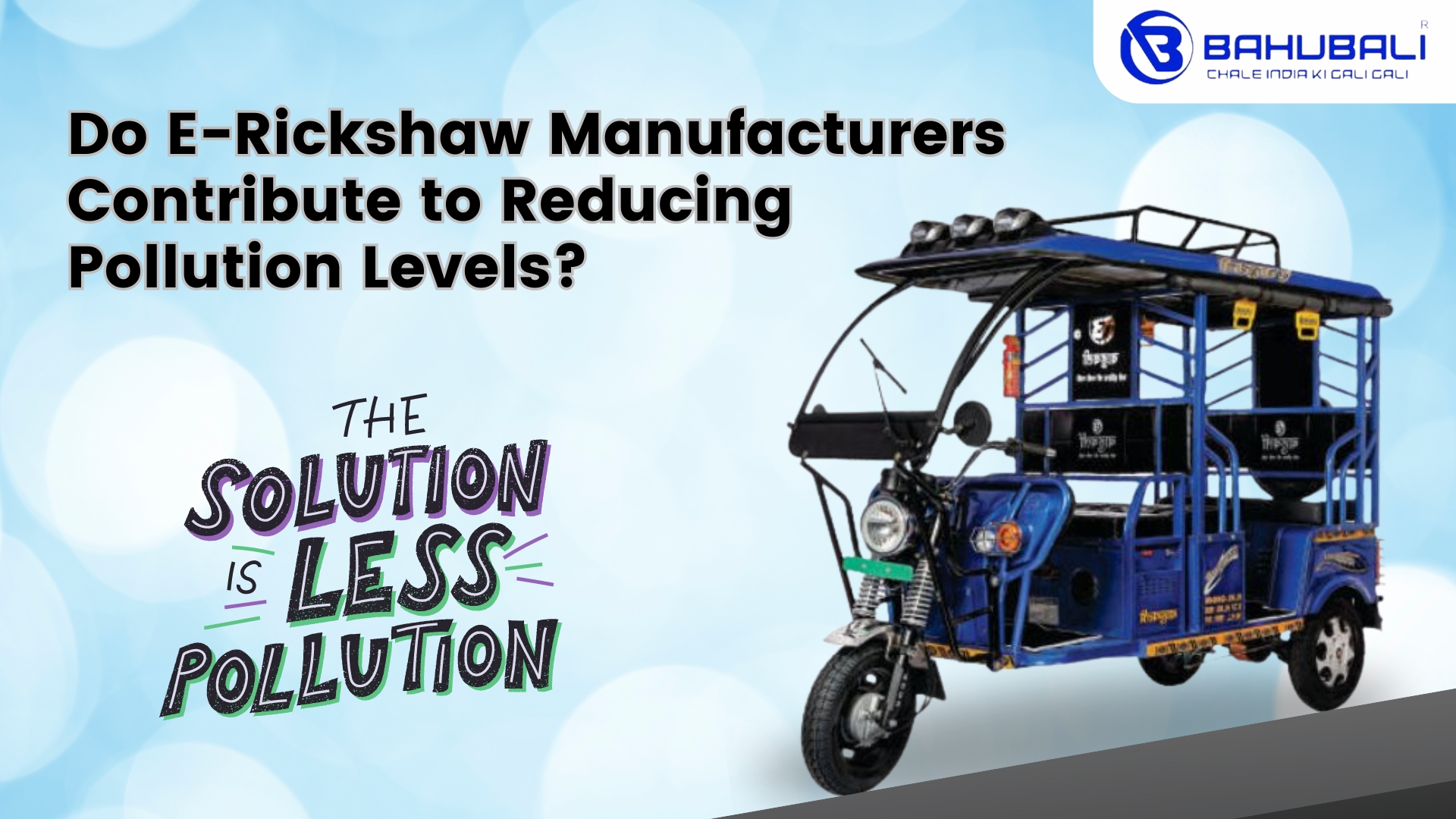
In the struggle with increasing pollution and pressing requirement to lessen carbon discharges, makers of e-rickshaws have become crucial participants in battling against city pollution. These vehicles that run on electricity present a hopeful option to usual fuel-driven rickshaws, possibly aiding in making air cleaner and environment healthier. Yet, what is the exact manner in which manufacturers of e-rickshaws help decrease pollution levels? Let’s delve into this important question.
E-rickshaws, they are known as electronic rickshaws and more people are using them in developing nations. This is especially true for places like South Asia and Southeast Asia. These vehicles, which use batteries to function, provide a calm and pollution-free means of transport for small distances at low prices. The rise in recognition of environmental problems along with new rules from the government about emissions has led to an increase in e-rickshaw production, satisfying the need for cleaner transport choices.
The initial manner in which manufacturers of e-rickshaws help to decrease pollution is by creating these vehicles that do not emit any substances. Unlike normal auto-rickshaws which run on petrol or diesel, an e-rickshaw produces no direct emissions while it is being used. Such immediate lessening in tailpipe discharges can make a big difference to the quality of air, mainly in crowded city areas where usual auto-rickshaws are found.
With the change from regular rickshaws to electric ones, makers help in reducing bad pollution like carbon monoxide, nitrogen oxides, and tiny pieces of matter in air. Using electric rickshaws does not just make air better but also helps in lessening overall emissions of greenhouse gases which is part of worldwide efforts towards fighting climate change.
The makers of e-rickshaws also help to decrease pollution in an indirect way. When more people want e-rickshaws, it gives a reason for making charging places that use renewable energy like solar or wind power. Some manufacturers are working together with companies who provide clean electricity from renewable sources; this means they can give complete solutions for charging and lessen the carbon footprint associated with operating an e-rickshaw.
In addition, the change to electric vehicles in the rickshaw area leads to new developments in battery technology. Makers are always trying for better efficiency of batteries, longer life span and ability to recycle them. This could also impact other electric vehicle sectors as well as storage solutions for sustainable energy.
Noise pollution, an environmental and health problem in many urban places, is not usually associated with traditional auto-rickshaws. These vehicles are generally seen as a contributor to the overall noisy atmosphere found in cities. The production of e-rickshaws that are nearly silent by manufacturers is a response to this issue. The betterment in life quality for city residents due to less noise pollution aids in making the urban setting more pleasant.
Thinking about the whole lifecycle of e-rickshaws, which starts from making them to when they are no longer useful, many makers are setting up programs that recycle batteries and other parts. This helps in creating a circular economy and lessening waste. The act of designing these vehicles with the intention of being recyclable combined with take-back programs makes sure that makers play their part in decreasing environmental effects.
The success of e-rickshaws is like a real example showing how electric mobility can work well in countries that are still developing. Those who make e-rickshaws show that electric vehicles could be practical, cheap and good for the environment as compared to other normal transport methods. This success makes governments and other important people think about using more electricity for public transportation systems, which may reduce pollution in cities even more.
The makers of e-rickshaws are surely helping in the fight against pollution. However, we also have to accept the difficulties that still exist. The environmental effects from producing and getting rid of batteries, where electricity comes from for charging, and better recycling systems need focus and enhancement.
In the future, e-rickshaw makers might have a larger part in decreasing pollution. With advancements in technology, we can anticipate better battery functioning, the inclusion of environmentally friendly components for constructing vehicles, and inventive methods for incorporating e-rickshaws into smarter and greener city transport systems.
If we talk about e-rickshaw manufacturers who are actually making a difference in reducing pollution, Bahubali E-Rickshaw is leading the way. Being India’s topmost e-rickshaw manufacturer has not only given Bahubali the honor to introduce high-quality electric vehicles but also shown its deep dedication towards environmental sustainability.
Bahubali E-Rickshaw’s speciality lies not only in creating zero-emission vehicles but also in their strong investment towards research and development of e-rickshaws that are environment-friendly along with being efficient and long-lasting. The company’s cutting-edge battery technology ensures greater range capacity as well as quicker charging periods, making e-rickshaws a superior choice compared to the conventional auto-rickshaws.
When you select Bahubali E-Rickshaw, it’s not merely a decision about purchasing an automobile; rather it symbolizes your commitment towards cleaner and more eco-friendly metropolitan mobility. Feel the variation that comes with India’s best e-rickshaw brand and become part of Bahubali, working for making cities more sustainable.